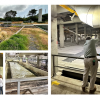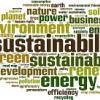Search
Displaying Results 26 - 50 of 61
How to ensure access to decent, adequate, affordable and healthy housing for all? How to reduce the impact of the housing sector on the environment? How to make the most of technological developments to make cities really “smart” and improve the quality of life of their inhabitants? What are the
The production and international trade of dried fruits and nuts has increased steadily over the past decade and is expected to continue growing. Helping structure the offer of local producers and implementing international trading standards is of vital importance for major producing countries
Experts will gather in Chisinau from 10-12 September to discuss how to better utilize administrative data sources and censuses to improve the measurement of migration and its impact, and how to reach “hard-to-count” migrant populations. They will also decide on concrete follow-up activities to
Experts from UNECE member States and the secretariat will be visiting Bosnia and Herzegovina from 27 March to 6 April 2017 for a field mission in the framework of the third environmental performance review (EPR) of the country. The team will meet governmental officials and representatives of
Six months after UNECE ministers from 44 countries renewed their commitments on a number of environmental issues in the region (Batumi, Georgia, 8-10 June 2016), delegates at the 22nd session of the UNECE Committee on Environmental Policy (CEP) discussed progress in the implementation of those
Having the full picture is crucial for effective action to end violence against women. Yet today, efforts to address this critical sustainable development and human rights challenge remain severely hampered by lack of data.Violence against women is both a cause and a consequence of gender
The 2030 Agenda with its 17 Sustainable Development Goals provides an ambitious and comprehensive framework that opens new perspectives for policymaking and international cooperation. While progress in its implementation is being made in the UNECE region, our recent statistical report showed that
The COVID-19 pandemic has had a dramatic impact on cities and the wellbeing of communities. Cities and urban areas are at the frontline in the fight against the COVID-19 public health crisis and its socio-economic consequences. They also hold significant potential for recovering better by
A recent UNECE study on mapping of energy efficiency standards in buildings has shown that there is still much room for improvement in the setting and application of such standards in the countries of the UNECE region. In many countries there are challenges both with strictness and with
An estimated 3.6 billion people face inadequate access to water at least a month per year – a figure expected to increase to more than 5 billion by 2050. According to WMO, over 50% of global catchment areas and reservoirs displayed deviations from normal conditions in 2022, of which the
Mediterranean countries come together to increase climate resilience of water and sanitation sectors
The Mediterranean region is warming 20% faster than the global average and for every 1-degree global temperature increase, it would warm up by at least 1.5-2 degrees. This is severely impacting water and sanitation and the health and well-being of the region’s population. According to the World
No one left behind – this is the fundamental promise of the 2030 Agenda for Sustainable Development, and one of its most important commitments at all political levels: international, national and local. To make good on this promise we need data to show us how different groups in society are
Cities and urban areas have been at the epicentre of the COVID-19 pandemic which has drastically impacted the urban economy, including public services, employment and infrastructure, affecting all, but foremost the most vulnerable groups of the population. To support cities in their recovery from
Making drinking water and sanitation services affordable for all is key to guaranteeing the human rights to drinking water and sanitation. In the human rights framework, water and sanitation services are unaffordable when paying for them would compromise the ability to pay for other essential needs
Each UN country team develops with the host Government a strategic plan to support national development priorities and strategies. The result is the UN Sustainable Development Cooperation Framework (UNSDCF). The preparation of the UNSDCF begins with a Common Country Analysis (CCA), which provides
Countries in Eastern and South-East Europe need to develop viable solutions and goals for forest landscape restoration, as well as learn how to tap into the necessary financing. These topics were discussed during the workshop “Forest Landscape Restoration and the Bonn Challenge in Eastern and
UNECE supports countries’ sustainable transport transition through Environmental Performance Reviews
Transport can be a powerful driver of sustainable development, but this requires balancing its economic and social value with environmental and health considerations. In order to help meet this challenge, UNECE’s Environmental Performance Reviews (EPRs) assist countries in taking an integrated
Developing the capacity of statistical systems to respond to ever-changing demands is a core component of UNECE statistical work, linked directly to several of the targets of the 2030 Agenda for Sustainable Development. Key tools used for capacity development have traditionally been face-to-face
The residential sector is one of the major consumers of energy in many countries. In Armenia, for example, it accounts for 33% of total energy use. Rising fuel prices will bring substantial affordability challenges for low-income customers to heat their homes. According to UNECE research, at least
Did you know that one in four people in the UNECE region live in rural areas? This is true for almost one in three people over 65 as rural areas experience faster population ageing.Rural areas are more thinly populated and people are more geographically dispersed than in urban areas. For this
In the UNECE region, buildings are responsible for approximately one third of total energy consumption and account for almost 40 percent of CO2 emissions from combustion. Standards are an effective instrument for addressing energy efficiency in buildings and supporting the achievements of the
Effective public access to environmental information is critical for promoting a green and circular economy, increased biosafety and community resilience. The need to further such access using modern digital technologies has been increasingly voiced across countries in the light of the coronavirus
What can we learn from each other to deliver better results on the Sustainable Development Goals (SDGs)? When governments and key stakeholders gather in less than two weeks for the Regional Forum on Sustainable Development (21-22 March), they will have their hands full as they exchange
The raw materials sector is at the forefront of global challenges and opportunities of the 21st century, as it plays a vital role in the energy, transport, and digital transitions required to mitigate and adapt to climate change. However, the sector also faces significant pressures from consumers,
Gender equality is taking an increasingly visible place at the heart of national and international development policymaking. As it becomes ever more clear that effective, sustainable development depends on a genuine inclusion of gender concerns in all areas, policymakers are finding that they









